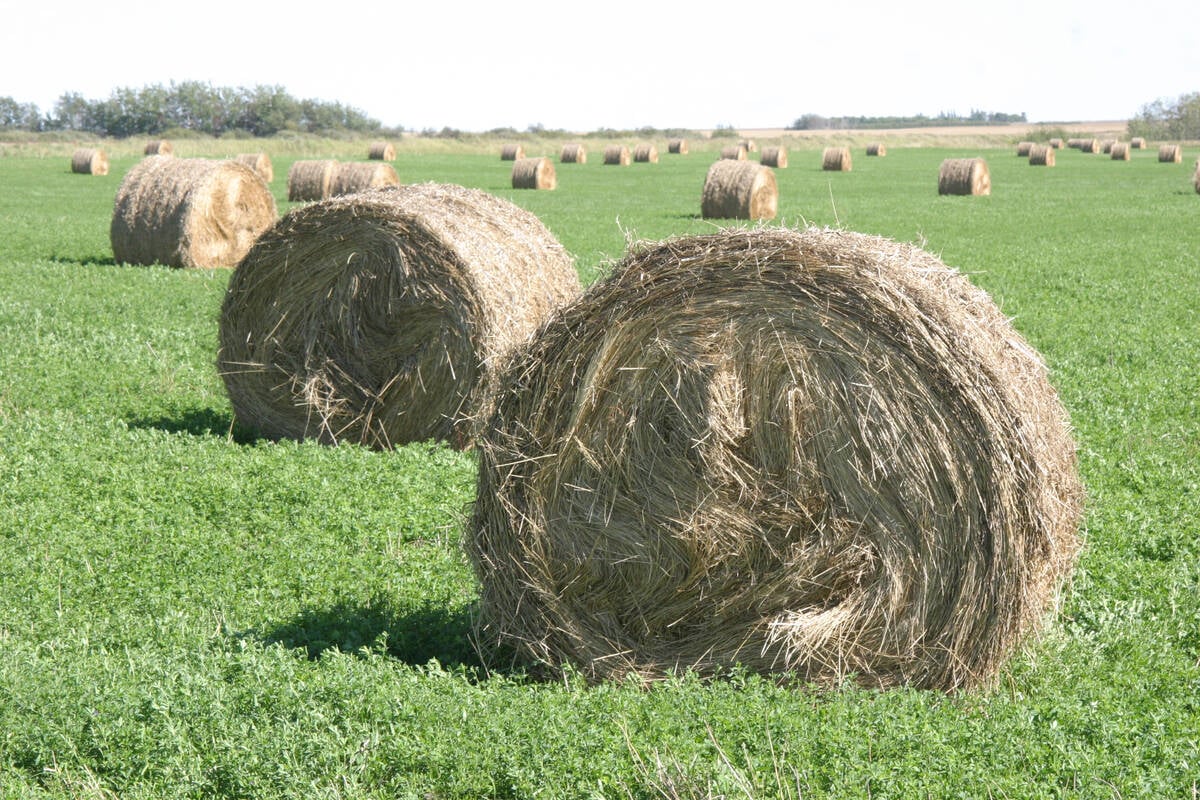BALZAC, Alta. – Kathy Shuttleworth cried for two hours after hearing
the kind of intrusive medical attention eight-year-old Oksana Oliynyk
required.
“She reminded me of my grandchildren,” Shuttleworth said in her
comfortable farm kitchen.
The semi-retired nurse and farmer from Balzac met the pale, frail girl
two years ago in Ukraine when she travelled with Medical Mercy Canada
to deliver humanitarian aid to small villages dotting the western
section of the country.
Oksana was one of many patients arriving at a village clinic eight
Read Also

Breaking down successful winter feeding into six steps
It’s that time of year when it is important to start planning for a cow herd’s winter feeding program. Here are six steps I think are necessary to consider when getting your feed tested.
hours west of Kiev.
The team realized this sick girl might not live to be a teenager if she
did not receive treatment soon.
She was born with a hole in her heart. Ukrainian doctors had repaired
it when she was three, but infection set in and repeated surgeries did
not improve her condition. Her heart and liver were enlarging and she
was retaining fluid.
Visas had to be obtained and money raised to bring Oksana and her
mother to Canada. After two years of government bureaucracy between the
two countries, the pair arrived in Calgary in February and successful
surgery was performed in Edmonton on April 17.
“My biggest fear was that she would get here and they would look at her
and say ‘we can’t do anything,’ ” Shuttleworth said.
Physicians and nurses involved with Medical Mercy take medical
supplies, clothes and money to outlying villages in the Ukraine,
Thailand and Burma.
Shuttleworth’s first and only trip left a lasting impression.
She and her husband Grant run a prosperous mixed farm northeast of
Calgary. They have been married for 44 years and they work with their
son Darryl raising cereals and Charolais cattle. Kathy also maintains a
U-pick saskatoon patch, which she hopes to bring into full production
this summer.
But her life of comfort and security was shaken when she saw the lack
of sanitation, and the poverty and corruption that have beset Ukraine.
In the small farming communities the medical team visited, life was a
day-to-day struggle. There is no money, interest rates approach 50
percent and organized crime preys on those who try to prosper.
For Kathy, the women’s lives were an eye opener.
While she drives the combine at home and helps with calving, she
learned these women do hard manual labour and have limited
opportunities.
“All the time I was there, I met one woman who could drive a car. A lot
of them don’t have cars.”
The Ukrainians dig their large gardens by hand, milk cows, tend poultry
and pigs, bake bread, can fruit and vegetables, make cheese and look
after their homes at the end of the day.
The Russian-built farm equipment is old and decrepit, so many farmers
use horses.
“The collective farms are falling down everywhere and the buildings are
just a mess.”
She was also shocked by the lack of sanitation. Outhouses were common
around most homes she visited. Even in hospitals, there were inadequate
washing facilities with mould on the floor. She took pictures of
filthy, overflowing toilets to emphasize the appalling conditions to
her friends at home.
Basic hospital supplies like microscopes, examining tables, painkillers
and disinfectants were scarce. Patients in hospitals usually provide
their own food and bedding.
Kathy saw elderly women suffering from chronically sore backs from
years of working bent over in the fields. High blood pressure, leg
ulcers and varicose veins were common.
“You feel so bad for them you would like to bring them all over here
and show them what it could be like. It’s a sad, sad world over there,”
she said.
The trip also held its rewards. The people were welcoming and pleasant,
the food was good and the countryside was beautiful.
Kathy was also able to trace her father’s family and met her cousins.
Travelling throughout Ukraine for a month left her with a sense of
purpose and desire to help more. The first task was to raise money for
Oksana’s trip to Canada as well as her medical treatment. Doctors
donated their time, but hospital beds, treatments and other services
had to be paid for and the bills quickly mounted.
She and others led fund-raising drives and found their rural neighbors
were generous.
“In the rural area, we raised over $30,000 and there has been other
money coming in,” she said.
- ow that Oksana is on the mend, Kathy is looking for a charity nearby.
“I’m looking around for something close to home.”
For further information on this humanitarian group contact:
www.medicalmercy
canada.org.















